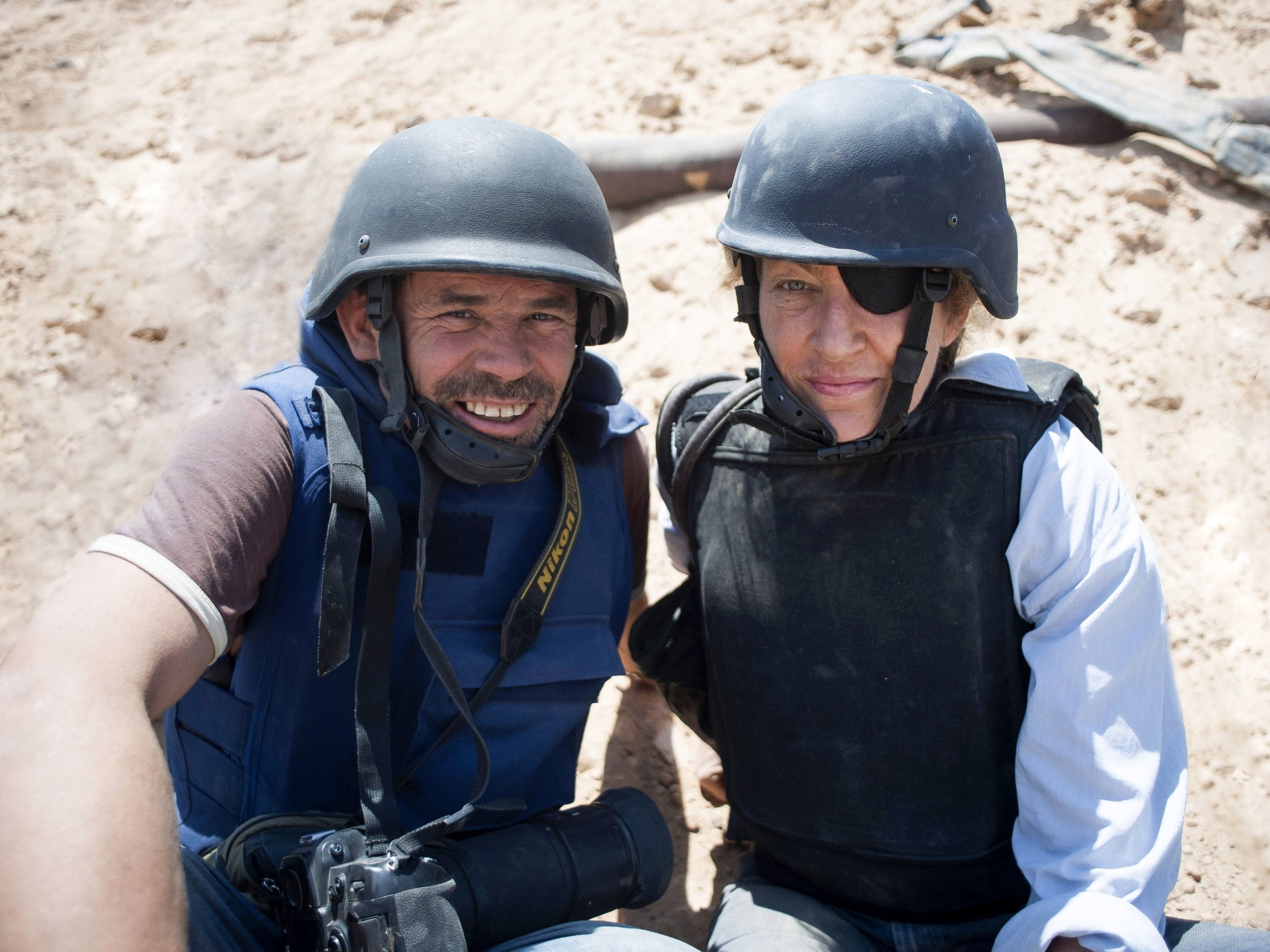Under the Wire review: Marie Colvin documentary is both gripping and moving
Chris Martin tells the story of journalist Marie Colvin’s final assignment before she was killed by the Assad regime

Your support helps us to tell the story
This election is still a dead heat, according to most polls. In a fight with such wafer-thin margins, we need reporters on the ground talking to the people Trump and Harris are courting. Your support allows us to keep sending journalists to the story.
The Independent is trusted by 27 million Americans from across the entire political spectrum every month. Unlike many other quality news outlets, we choose not to lock you out of our reporting and analysis with paywalls. But quality journalism must still be paid for.
Help us keep bring these critical stories to light. Your support makes all the difference.
Sunday Times foreign correspondent Marie Colvin died in Syria in 2012. Chris Martin’s gripping and moving feature documentary tells the story of Colvin’s final assignment. She and photographer Paul Conroy entered the country illegally, smuggling themselves in through a storm drain and making their way to Baba Amr in Homs.
The film is based on a book written by Conroy, who is the main interviewee. He was with Colvin in the international media centre at the time the Assad regime killed Colvin. Wounded in the same incident, he was determined to survive and to give a full account of what happened in Homs as civilian areas were bombed by the Syrian army.
“These beautiful people who were being slaughtered, I wanted to tell their story,” Conroy says, not just of Colvin and French photojournalist Rémi Ochlik also killed, but of the many Syrians who died.
Director Martin has some extraordinarily rich material to draw on – Conroy’s memories, those of colleagues at the Sunday Times and of other journalists who also travelled to Syria, Conroy’s own photographs, and first hand video footage of the siege.
The film is chilling but inspiring. We get an impression of Colvin’s dogged approach to her journalism – her tenacity, her ruthlessness when it came to protecting her patch and her compassion for her subjects. Other journalists would desert the Syrians under siege or see their plight as simply as a way they could make money. Colvin, who had lost an eye while reporting on conflict in Sri Lanka a decade before, earned their trust. She refused to leave.
Conroy’s survival story is astonishing itself. After Colvin’s death, he had a hair raising encounter with the Syrian Red Crescent, an aid agency run by the Syrian government. He was warned not to get into one of the organisation’s ambulances. Had he done so, he might have been executed.
Colvin’s life has now been dramatised in A Private War, a new dramatic feature starring Rosamund Pike and set to be released by the end of the year. It will struggle to match up to the tension and drama found in Martin’s documentary.
Join our commenting forum
Join thought-provoking conversations, follow other Independent readers and see their replies
Comments